Mwata Bowden was a young, classically trained musician when in 1974, he encountered Chicago’s Association for the Advancement of Creative Musicians (AACM). At that time, any player who strayed outside the lines of a given genre had no place to go. But in the AACM, Bowden found a sacred space of experimentation—and bold definition of a new black music experience. Jazz? Classical? Avant-garde? All the above? Even further beyond? To Bowden, it sounded exciting and enticing.
“Creative music hit me artistically, emotionally and it just clicked on all of the levels that truly inspire me and turn me on,” says Bowden, who is Director of Jazz Ensembles at UChicago. “So when by accident I ran into this music, it moved me: The musicians were serious and their practice habits were those I was accustomed to. I knew I had found my place. Everything could be brought to the table.”
[view:story=block_1]
That table has grown into a veritable musical feast, as the AACM marks its 50th anniversary year with a series of special concerts. The highlight event is a reunion concert—“Together: A Power Stronger Than Itself”—that takes place Sunday, April 26 at Mandel Hall.
“This is a tremendous opportunity to recognize the AACM’s incredible contributions to the arts, both on the South Side of Chicago and around the world,” said Bill Michel, Executive Director of the Logan Center. “We are pleased to be partnering with the AACM, the DuSable Museum, and the Center for the Study of Race Politics and Culture to be celebrating these talented musicians.”
A Chicago homecoming
On April 26, 50 AACM members from across the globe, and spanning several generations, will unite for a special two-hour performance that combines classic AACM material with new compositions. And it will literally symbolize how AACM has grown as it progresses in three groupings. The first will start with one musician and grow to eight (in a tribute to AACM co-founder Kelan Phil Cohran); the second will grow to 18; and eventually 50 musicians will fill the stage under Bowden’s direction. That history is further explored in a concurrent exhibition at the DuSable Museum, “Free at First: The Audacious Journey of the Association for the Advancement of Creative Musicians.”
The concert is taking place in Mandel Hall—a venue that has played a key role in AACM history—and so marks a true homecoming. “This is an opportunity for all of us to come back from all parts of the world and celebrate this storm that started in Chicago,” Bowden says. “When you go out into the world, you still have plenty to give—but when you come back home, you have a chance to re-energize.”
He adds that the 50th anniversary “recognizes the longevity of a black arts organization that has been active all this time. There have definitely been other leaders and places: Horace Tapscott in California, Allen Toussaint in New Orleans. But with AACM, Chicago always has welcomed the effort to take chances and play.”
That daring has inspired musical authorities the world over, including Chicago Tribune Jazz Critic Howard Reich. In a recent piece, Reich lauded the AACM as a collective that “invented original musical languages, created intriguing new instruments, crafted novel ways of penning scores and otherwise defied long-standing presumptions about how music was supposed to be made.”
Reich’s comments point to the elusive task of defining the AACM. It’s an organization, an attitude, an incubator for new ideas and a bastion of championing the African-American cultural experience through music.
Its roots can be traced to a time in Chicago history when jazz musicians went from ceaseless, exhausting club gigs to hardly any work at all. And so the founders of AACM set an ambitious agenda on multiple fronts: They wanted to create something new, stage and promote it themselves, and channel the perceptions of the black experience into a new light.
Bowden recalls the early days: “As musicians we began to be entrepreneurs. We performed in storefronts, churches, anywhere we could play this music. We produced our own concerts, wrote our own music and made our own guidelines.”
That might’ve been an easy sell if the group had stuck to jazz standards and standard ways of playing. Instead, the group embarked on a journey so self-styled, it literally launched with no fan base to speak of.
Yet beyond gigs, AACM saw the conditions on the South Side—and in urban communities everywhere—and labored to create a touchstone of pride and positive energy. “The racial, gender and economic problems needed to be addressed,” Bowden recalls. “Food problems needed to be addressed. Discrimination needed to be addressed.” On that last point, AACM members had direct experience, as white club owners shut them out of many venues.
Inspiring young innovators
Today, the AACM can look back and proclaim that those 1960s goals have blossomed into educational leadership roles. Along with Bowden’s post at UChicago, AACM leads a music school for disadvantaged youth that offers free education.
“We are seeing a cycle here, and to last another 50 years, it can’t happen unless you are giving back, educating and letting young people know they can be the new innovators—and that any of our students can bring innovation into this art form,” Bowden says.
To that end, UChicago’s Jazz X-tet (which Bowden has led since its founding in 1994) will perform commissioned compositions by AACM members in a free Logan Center concert on June 4. The show will feature works by Bowden, Renee Baker, George Lewis, and Wadada Leo Smith. This includes a work by Nicolle Mitchell, who also will appear as a guest conductor.
It’s safe to say that as the next generation of AACM musicians rises up, from the UChicago campus and elsewhere, it will continue to buck trends. Its path, though not financially bankable in a big way, is nonetheless rich: dedicated to community, musical daring and harmony of the highest level.
Bowden puts it this way: “Once you are an AACM member, you are there forever.”
“Together: A Power Stronger Than Itself—AACM’s 50 Anniversary Performance,” takes place 7 p.m. Sunday, April 26 at the Mandel Hall, 131 E. 57th St. Tickets are $15 (students and seniors); $35 (general admission); and $100 (VIP). For more information, contact UChicago Arts at (773) 702-2787 or visit arts.uchicago.edu.
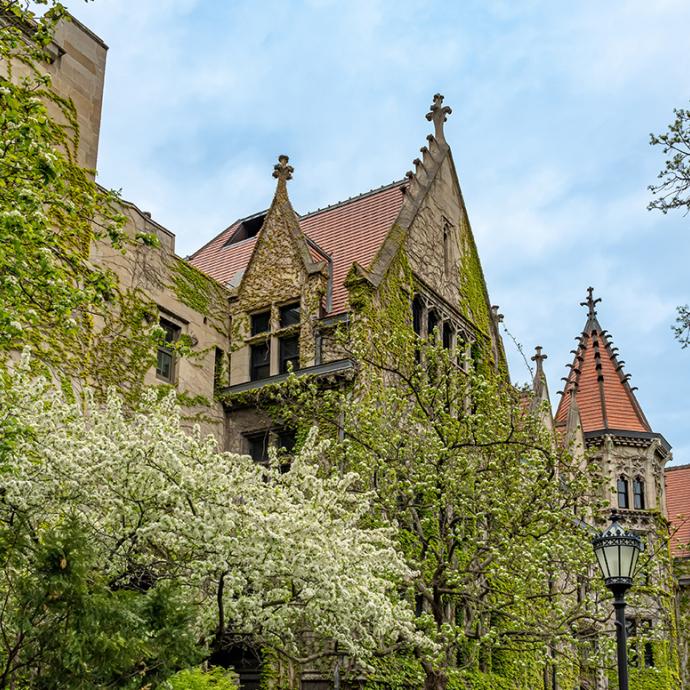
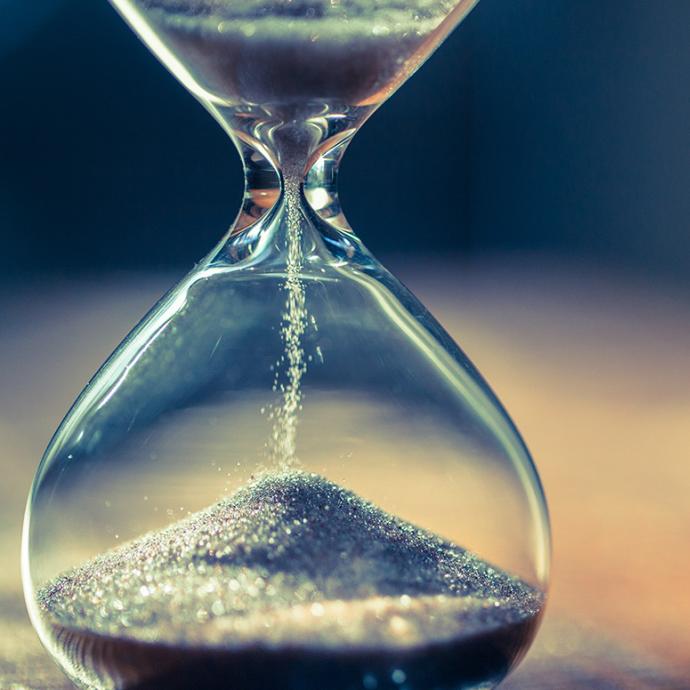
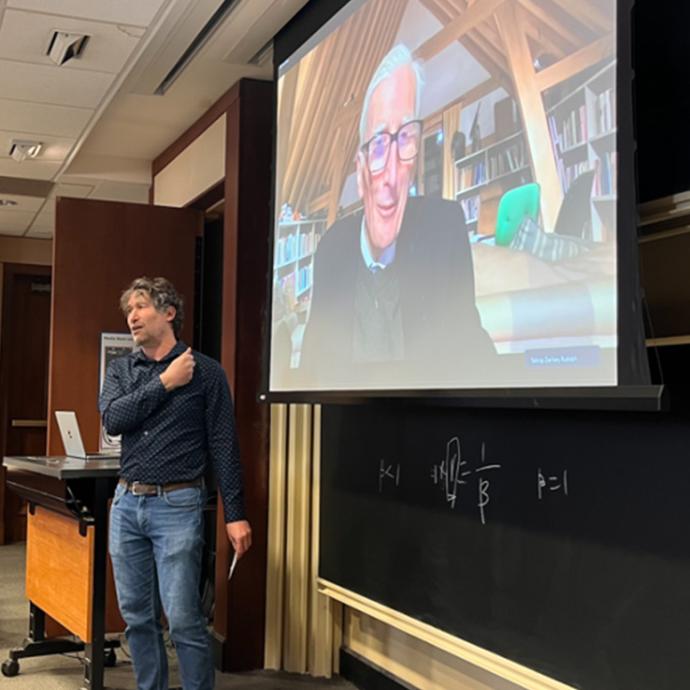
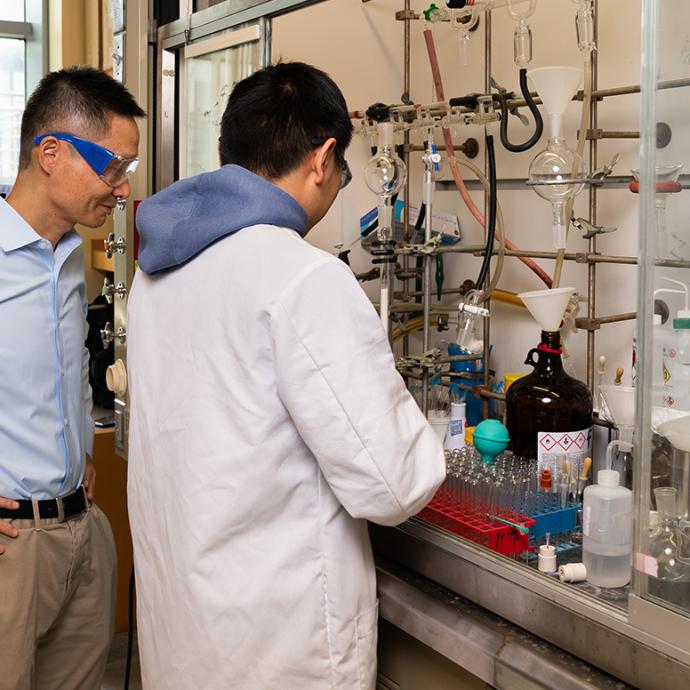

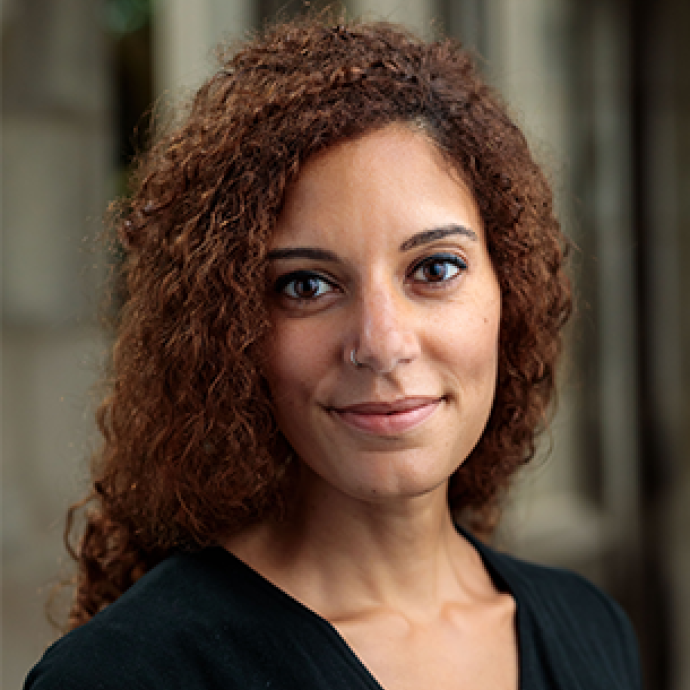
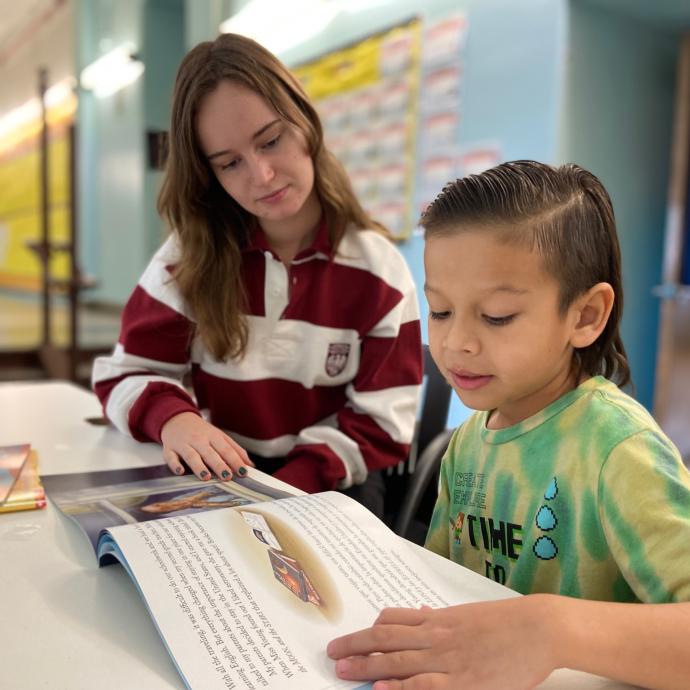


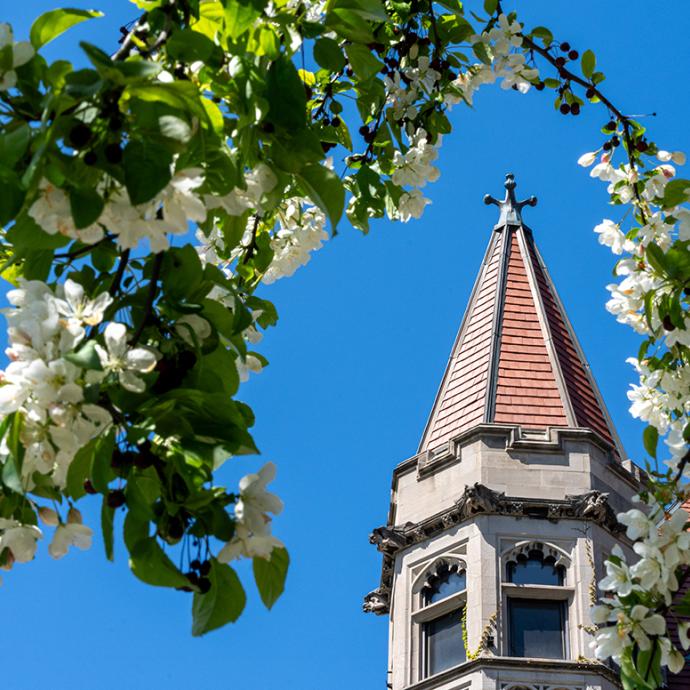
 —Prof. Chuan He
—Prof. Chuan He
